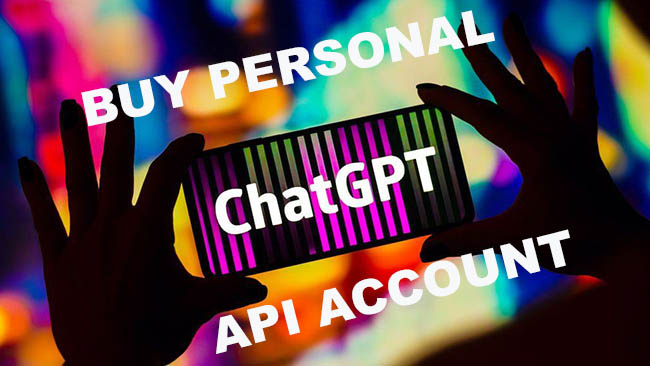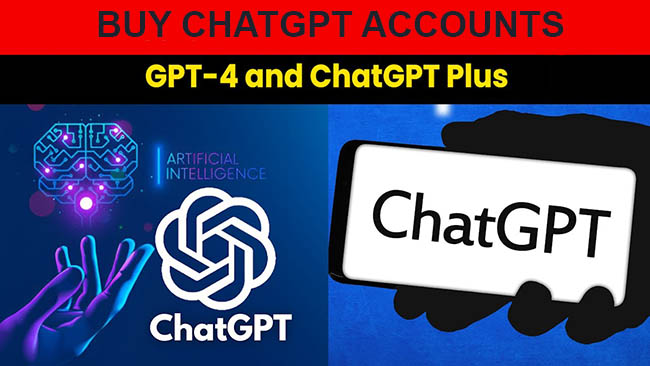Get instant answers to your medical questions from qualified doctors through ChatGPT API. Chat with doctors and get professional advice on your health concerns.
ChatGPT API: How Doctors Use AI to Answer Patient Questions
Artificial Intelligence (AI) has revolutionized many industries, and healthcare is no exception. With the advancement of AI technology, doctors have found a new tool to assist them in answering patient questions and providing medical advice. One such tool is the ChatGPT API, which allows doctors to leverage AI to enhance their patient interactions.
The ChatGPT API is a powerful tool that utilizes natural language processing and machine learning to generate human-like responses to patient inquiries. Doctors can integrate this API into their existing systems, such as patient portals or telemedicine platforms, to offer personalized and instant responses to common medical questions.
By using the ChatGPT API, doctors can provide timely and accurate information to patients, even when they are not available for direct consultation. Patients can ask questions about symptoms, medications, treatment options, and more, and receive reliable answers based on medical knowledge and best practices.
Furthermore, the ChatGPT API can assist doctors in triaging patient concerns. It can help determine the urgency of a situation and guide patients on whether they should seek immediate medical attention or follow certain self-care measures. This feature is particularly valuable in situations where patients may be unsure about the severity of their symptoms.
Overall, the ChatGPT API offers doctors a valuable AI-powered tool to improve patient care and access to medical information. By integrating this technology into their practice, doctors can provide patients with reliable answers to their questions, enhance patient education, and ultimately contribute to better healthcare outcomes.
Improving Patient Care: ChatGPT API in Action
ChatGPT API has revolutionized the way doctors provide care to their patients. By leveraging the power of AI, doctors can now answer patient questions more efficiently and accurately, leading to improved patient care and satisfaction.
Real-time Assistance
With the ChatGPT API, doctors can access a vast knowledge base and provide instant responses to patient queries. This real-time assistance eliminates the need for patients to wait for a doctor’s availability or schedule an appointment, ensuring that they receive timely information and guidance.
Patients can ask questions about their symptoms, medications, treatment options, or any other medical concerns. The AI-powered system can understand and interpret these queries, providing accurate and relevant information to patients.
Enhanced Patient Education
ChatGPT API also plays a crucial role in patient education. Doctors can use the AI system to explain complex medical concepts or procedures in a simplified manner, making it easier for patients to understand their condition and treatment plan.
By providing clear and concise explanations, doctors can empower patients to make informed decisions about their healthcare. Patients can also access educational materials or resources recommended by the AI system, further enhancing their understanding of their health condition.
Improved Efficiency
The use of ChatGPT API streamlines the communication process between doctors and patients, leading to improved efficiency in healthcare delivery. Doctors can handle a larger volume of patient inquiries without compromising the quality of care.
By automating responses to common questions, doctors can save time and focus on more critical tasks. The AI system can also assist with appointment scheduling, medication reminders, and follow-up instructions, reducing the administrative burden on healthcare providers.
Personalized Care
ChatGPT API enables doctors to provide personalized care to each patient. The AI system can analyze patient data, including medical history, demographics, and symptoms, to offer tailored responses and recommendations.
Doctors can address patient concerns specific to their condition, taking into account individual factors that may influence their treatment. This personalized approach enhances patient satisfaction and helps build trust between doctors and patients.
Continuous Learning
The AI system powered by ChatGPT API continuously learns from interactions with doctors and patients, improving its accuracy and performance over time. As more healthcare professionals use the system, it becomes more adept at understanding medical terminology and providing precise responses.
Doctors can also provide feedback on the AI system’s responses, helping to fine-tune its capabilities and ensure reliable and trustworthy information is delivered to patients.
Conclusion
With the ChatGPT API, doctors can leverage AI technology to enhance patient care, improve efficiency, and provide personalized assistance. The system’s real-time responses, educational capabilities, and continuous learning contribute to a more informed and engaged patient population, leading to better health outcomes.
Enhancing Doctor-Patient Communication
Effective communication between doctors and patients is crucial for providing quality healthcare. By leveraging AI technology, doctors can enhance their communication with patients, leading to better understanding, improved patient satisfaction, and more accurate diagnoses. Here are some ways AI can enhance doctor-patient communication:
1. Language Translation
Language barriers can hinder effective communication between doctors and patients. AI-powered language translation tools can help overcome these barriers by providing real-time translation services. Doctors can communicate with patients in their native language, ensuring that important medical information is accurately conveyed and understood.
2. Patient Education
AI can assist doctors in educating patients about their medical conditions, treatment options, and preventive measures. Through interactive platforms, doctors can provide detailed explanations and answer patient questions, empowering them to make informed decisions about their healthcare.
3. Remote Monitoring
AI-enabled remote monitoring devices can allow doctors to track patients’ health conditions outside of the clinic or hospital. By collecting and analyzing data, doctors can provide personalized guidance and interventions, enabling patients to manage their health effectively. This continuous communication helps doctors and patients stay connected and address any concerns promptly.
4. Virtual Consultations
AI-powered virtual consultations enable doctors and patients to communicate without the need for physical appointments. Patients can seek medical advice remotely, saving time and effort. Doctors can evaluate symptoms, provide recommendations, and answer questions through video calls or chat interfaces, ensuring that patients receive timely and convenient healthcare services.
5. Personalized Health Recommendations
AI algorithms can analyze patient data, such as medical history, lifestyle, and genetic information, to provide personalized health recommendations. Doctors can use these insights to tailor treatment plans and lifestyle advice, increasing patient engagement and adherence to recommended therapies.
6. Efficient Appointment Scheduling
AI-powered systems can streamline the appointment scheduling process, reducing wait times and improving access to healthcare. Patients can use online platforms or chatbots to book appointments based on their preferences and availability. This automation frees up administrative tasks for doctors, allowing them to focus more on patient care.
Incorporating AI technologies into doctor-patient communication can revolutionize healthcare delivery by improving accessibility, patient education, and overall quality of care. However, it is essential to strike a balance between AI and human interaction to ensure that empathy and trust remain central to the doctor-patient relationship.
Accuracy and Efficiency: AI’s Impact on Answering Patient Questions
AI technology has revolutionized the way doctors answer patient questions, providing a significant impact on both accuracy and efficiency. With the advent of ChatGPT API, healthcare professionals can harness the power of AI to better serve their patients.
Improved Accuracy
One of the key benefits of using AI to answer patient questions is the improved accuracy it offers. AI models like ChatGPT have been trained on vast amounts of medical data, enabling them to provide accurate and reliable answers to a wide range of medical queries.
By leveraging this vast knowledge base, AI-powered systems can offer more precise and up-to-date information than traditional methods. Patients can receive accurate answers to their questions, helping them make informed decisions about their health and treatment options.
Enhanced Efficiency
AI also significantly enhances the efficiency of answering patient questions. With AI, healthcare professionals can automate the process of addressing common queries, freeing up valuable time for more complex patient cases.
ChatGPT API allows doctors to integrate AI-powered chatbots into their workflow, enabling patients to ask questions and receive instant responses. This eliminates the need for patients to wait for an available doctor or nurse and reduces the burden on healthcare staff.
24/7 Availability
AI-powered systems provide round-the-clock availability to answer patient questions. Patients can access the AI chatbot at any time, day or night, without having to wait for business hours or appointments.
This 24/7 availability ensures that patients receive timely information and support, especially in urgent situations. It can also help alleviate the strain on emergency departments by providing quick responses to non-emergency medical inquiries.
Personalized and Confidential
AI-powered chatbots can offer personalized responses to patient questions based on their specific circumstances. By analyzing patient data and medical history, AI systems can provide tailored information and recommendations.
Furthermore, AI respects patient confidentiality by adhering to strict privacy protocols. Patients can have peace of mind knowing that their personal health information is secure when using AI-powered systems to ask sensitive medical questions.
Conclusion
The integration of AI into healthcare has revolutionized the way patient questions are answered. With improved accuracy, enhanced efficiency, and 24/7 availability, AI-powered systems like ChatGPT API provide a valuable resource for patients seeking medical information. By leveraging AI technology, doctors can optimize their workflow, provide better patient care, and ensure that accurate and reliable information is readily accessible to all.
Harnessing the Power of Natural Language Processing
Natural Language Processing (NLP) is a subfield of artificial intelligence (AI) that focuses on the interaction between computers and human language. It encompasses the ability of computers to understand, interpret, and generate human language in a way that is meaningful and useful.
NLP has gained significant attention and importance in recent years due to the exponential growth of textual data available on the internet, as well as the increasing demand for intelligent systems that can understand and process human language. It has found applications in various industries, including healthcare.
Understanding Patient Questions
In the healthcare industry, NLP plays a crucial role in helping doctors and healthcare professionals understand and answer patient questions. Patients often have numerous questions about their symptoms, conditions, medications, and treatments, and it can be challenging for doctors to provide timely and accurate responses to each query.
NLP-powered AI models, such as ChatGPT, can assist doctors by analyzing and interpreting patient questions. These models can understand the context, extract relevant information, and provide informative responses. They can also identify any potential ambiguities or uncertainties in the questions and seek clarification if necessary.
Improving Efficiency and Accuracy
By harnessing the power of NLP, doctors can improve the efficiency and accuracy of their interactions with patients. NLP models can quickly analyze and process large volumes of textual data, allowing doctors to handle a higher number of patient queries without compromising quality.
Furthermore, NLP models can help doctors stay up-to-date with the latest medical research and guidelines. They can analyze vast amounts of scientific literature and extract relevant information that can aid in answering patient questions accurately and based on current knowledge.
Enhancing Patient Experience
NLP-powered AI systems can also enhance the overall patient experience. Patients often have concerns and uncertainties about their health, and being able to receive informative and timely responses to their questions can alleviate their worries and improve their confidence in their healthcare providers.
Additionally, NLP models can provide personalized responses based on individual patient characteristics and medical history. This level of customization can make patients feel more valued and understood, further enhancing their overall experience with the healthcare system.
Challenges and Considerations
While NLP holds great promise in the healthcare industry, there are several challenges and considerations to keep in mind. Ensuring patient privacy and data security is of utmost importance when implementing NLP systems. It is crucial to handle patient data with care and comply with relevant privacy regulations.
Moreover, NLP models need to be continuously trained and updated to stay relevant and accurate. The medical field is constantly evolving, and new research and treatments emerge regularly. Keeping NLP models up-to-date with the latest information is essential to provide accurate responses to patient questions.
Conclusion
Natural Language Processing is a powerful tool that can revolutionize the way doctors interact with patients. By leveraging NLP-powered AI models, doctors can efficiently and accurately answer patient questions, improve the patient experience, and stay up-to-date with the latest medical knowledge. With proper considerations for privacy and continuous model training, NLP can bring significant benefits to the healthcare industry.
Ensuring Privacy and Security of Patient Information
Protecting patient information is of utmost importance in the healthcare industry. With the increasing use of AI in answering patient questions, it is crucial to ensure the privacy and security of patient data. Here are some key measures taken to safeguard patient information:
- Data encryption: All patient data is encrypted using industry-standard encryption algorithms. This ensures that the information transmitted between the patient and the AI system is secure and cannot be intercepted by unauthorized individuals.
- Access control: Only authorized healthcare professionals have access to patient information. Strict access control measures are implemented to prevent unauthorized individuals from viewing or modifying patient data.
- Secure storage: Patient information is stored in secure databases that comply with industry regulations and best practices. These databases have robust security measures in place, such as firewalls, intrusion detection systems, and regular security audits.
- Anonymization: To further protect patient privacy, personal identifying information is anonymized before being used by the AI system. This ensures that any information shared with the AI system cannot be linked back to an individual patient.
- Data minimization: Only the necessary patient information is collected and used by the AI system. Unnecessary data is not stored or processed, reducing the risk of data breaches or misuse.
- Compliance with regulations: Healthcare organizations and AI systems must comply with relevant data protection regulations, such as the Health Insurance Portability and Accountability Act (HIPAA) in the United States. Compliance ensures that patient information is handled in accordance with legal requirements.
- Regular audits and risk assessments: Healthcare organizations regularly conduct audits and risk assessments to identify potential vulnerabilities in their systems and processes. This helps in proactively addressing security issues and ensuring continuous improvement.
By implementing these measures, healthcare providers can ensure the privacy and security of patient information when using AI systems like ChatGPT to answer patient questions. Patients can have confidence that their data is protected and their privacy is respected throughout the AI-powered healthcare experience.
Integrating AI into Existing Healthcare Systems
Integrating artificial intelligence (AI) into existing healthcare systems has the potential to revolutionize patient care and improve overall outcomes. By leveraging AI technologies, healthcare providers can enhance diagnostic accuracy, streamline administrative processes, and personalize treatment plans.
Benefits of AI Integration
1. Enhanced Diagnostic Accuracy: AI algorithms can analyze vast amounts of patient data, including medical records, lab results, and imaging scans, to assist healthcare professionals in making more accurate diagnoses. Machine learning models can identify patterns and correlations that may not be easily detectable by humans, leading to earlier detection of diseases and improved treatment outcomes.
2. Streamlined Administrative Processes: AI-powered chatbots and virtual assistants can handle routine administrative tasks, such as appointment scheduling, prescription refills, and billing inquiries. This frees up healthcare staff’s time, allowing them to focus on providing direct patient care and reducing administrative burdens.
3. Personalized Treatment Plans: AI algorithms can analyze individual patient data, such as genetics, medical history, and lifestyle factors, to develop personalized treatment plans. This approach enables healthcare providers to deliver tailored interventions, medications, and therapies, resulting in improved patient satisfaction and better treatment outcomes.
Challenges and Considerations
While integrating AI into healthcare systems offers numerous benefits, there are several challenges and considerations to address:
- Data Privacy and Security: Healthcare organizations must ensure that patient data is adequately protected and comply with privacy regulations, such as HIPAA. Robust security measures, such as encryption and access controls, should be implemented to safeguard sensitive information.
- Ethical Use of AI: The ethical implications of AI in healthcare, such as bias in algorithms and patient autonomy, must be carefully addressed. Healthcare providers should prioritize transparency, fairness, and accountability in the development and deployment of AI systems.
- Integration with Existing Systems: AI solutions should seamlessly integrate with existing healthcare systems to avoid disruption and maximize efficiency. Compatibility with electronic health records (EHRs) and other clinical software is crucial for effective implementation.
- Staff Training and Adoption: Healthcare professionals need proper training to effectively use AI technologies. Training programs should be developed to ensure healthcare staff’s proficiency in leveraging AI tools and interpreting the results generated by these systems.
Conclusion
Integrating AI into existing healthcare systems holds tremendous promise for improving patient care, enhancing diagnostic accuracy, and streamlining administrative processes. However, careful consideration must be given to data privacy, ethical concerns, system integration, and staff training to ensure successful implementation. By addressing these challenges, healthcare organizations can leverage the power of AI to deliver more personalized and efficient healthcare services.
The Future of AI in Healthcare: Expanding Possibilities
The field of healthcare has witnessed numerous advancements over the years, and one of the most promising technologies that is shaping its future is Artificial Intelligence (AI). AI has the potential to revolutionize the healthcare industry by improving patient care, streamlining processes, and expanding possibilities for diagnosis and treatment.
AI algorithms are capable of analyzing vast amounts of medical data, including patient records, medical literature, and research papers. This enables healthcare professionals to access accurate and up-to-date information, leading to more informed decision-making and improved patient outcomes. AI-powered systems can assist doctors in diagnosing diseases, predicting patient outcomes, and suggesting personalized treatment plans.
One of the key areas where AI is making a significant impact is in radiology. AI algorithms can analyze medical images, such as X-rays, CT scans, and MRIs, with remarkable accuracy. They can quickly detect abnormalities, assist in early diagnosis, and even recommend the most suitable treatment options. This not only saves time but also reduces the chances of human error.
Another exciting possibility that AI brings to healthcare is the use of chatbots and virtual assistants. These AI-powered tools can interact with patients, answer their questions, and provide guidance. This is particularly useful in scenarios where patients need immediate assistance or have general health-related queries. Chatbots can offer basic medical advice, help schedule appointments, and even monitor patient vitals remotely.
AI also has the potential to improve healthcare access and delivery in remote or underserved areas. Telemedicine, powered by AI, enables healthcare professionals to remotely diagnose and treat patients, reducing the need for physical visits. This is especially valuable in regions where access to healthcare facilities is limited.
However, as AI becomes more integrated into healthcare systems, it is crucial to address concerns regarding privacy, data security, and ethical considerations. Safeguarding patient information and ensuring that AI algorithms are unbiased and fair are important factors that need to be taken into account.
In conclusion, the future of AI in healthcare is promising. It has the potential to transform the industry by improving patient care, streamlining processes, and expanding possibilities for diagnosis and treatment. With continued research and development, AI will play a pivotal role in shaping the healthcare landscape, ultimately benefiting patients and healthcare professionals alike.
ChatGPT API: Doctors Answer Patient Questions
How does the ChatGPT API work?
The ChatGPT API allows developers to integrate the ChatGPT model into their own applications. It provides a simple interface for sending a list of messages as input and receiving a model-generated message as output.
How can doctors use AI to answer patient questions?
Doctors can use AI, like the ChatGPT model, to answer patient questions by integrating the model into their systems. They can send the patient’s question as input to the model and receive a generated response, which can help provide accurate and relevant information to the patient.
What are the benefits of using ChatGPT for doctors?
Using ChatGPT can benefit doctors by providing them with a tool to answer patient questions more efficiently. The model can assist in handling common and repetitive queries, freeing up doctors’ time to focus on more complex cases. It can also help provide consistent and accurate information to patients.
Can ChatGPT replace human doctors?
No, ChatGPT cannot replace human doctors. While the model can provide information and answer questions to the best of its abilities, it does not have the same level of expertise and understanding as a human doctor. It should be seen as a tool to support doctors in their work and not a replacement for their knowledge and experience.
Are there any limitations to using AI in healthcare?
Yes, there are limitations to using AI in healthcare. AI models like ChatGPT can only provide responses based on the data they were trained on and may not always have access to the most up-to-date medical information. They also lack the ability to interpret complex medical cases or make clinical judgments, which are crucial for accurate diagnosis and treatment.
How can AI help improve patient care?
AI can help improve patient care by assisting doctors in answering patient questions, providing information, and supporting decision-making. It can help reduce the burden on doctors, improve response times, and enhance the overall patient experience. Additionally, AI can be used to analyze large amounts of medical data to identify patterns and trends, leading to advancements in medical research and treatment.
Is patient data secure when using the ChatGPT API?
Yes, OpenAI takes data privacy and security seriously. As of March 1st, 2023, OpenAI retains customer API data for 30 days but no longer uses the data sent via the API to improve their models. You can learn more about OpenAI’s data usage policies by visiting their website.
Can the ChatGPT model understand medical jargon and terminology?
The ChatGPT model has been trained on a diverse range of internet text and can understand some medical jargon and terminology. However, it may still have limitations in understanding highly specialized medical terms or complex medical cases. It’s important for doctors to review and validate the responses generated by the model to ensure accuracy.
Where whereby you can acquire ChatGPT accountancy? Cheap chatgpt OpenAI Profiles & Chatgpt Pro Profiles for Offer at https://accselling.com, discount cost, safe and quick delivery! On this marketplace, you can purchase ChatGPT Account and receive entry to a neural network that can respond to any question or participate in significant discussions. Purchase a ChatGPT account now and start producing superior, intriguing content effortlessly. Obtain admission to the capability of AI language manipulating with ChatGPT. Here you can acquire a personal (one-handed) ChatGPT / DALL-E (OpenAI) profile at the leading costs on the market!



